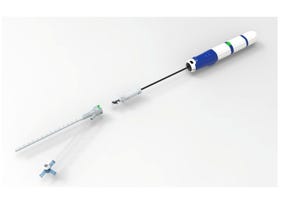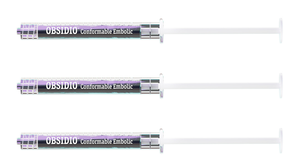FDA cited multiple FD&C violations, including complaint handling, medical device reporting, and corrective and preventative actions.

Olympus Medical Systems is once again receiving ire from FDA as the administration issued another warning letter to the manufacturer of endoscopes and endoscope accessories after inspecting an additional company facility in Tokyo, Japan. The letter cites a number of violations of the Federal Food, Drug, and Cosmetic (FD&C) Act, including compliant handling, medical device reporting, and corrective and preventative actions.
FDA revealed that its inspection of the facility showed nonconformity in the methods used in, or the facilities or controls used for, device manufacture, packing, storage, or installation in relation to current good manufacturing practice requirements of the Quality System regulation found at Title 21, Code of Federal Regulations (CFR), Part 820.
Violations noted in the warning letter included a failure to adequately establish and maintain procedures for implementing corrective and preventative action, including analyzing processes, work operations, concessions, quality audit reports, quality records, service records, complaints, returned product, among others, as required by 21 CFR 820.100(a)(1).
“Since November 2020, Olympus has received approximately 160 complaints describing the ‘distal end cover’ model number MAJ-2315 has ‘dropped out,’” wrote Courtney H. Lias, PhD, Director of the Office of Gastrorenal, OBGYN, General Hospital and Urology Devices, Office of Product Evaluation and Quality, and Center for Devices and Radiological Health, in the letter. “Your firm performed trending and identified that number of complaints was above the expected numbers for that type of complaint. However, your firm did not consider this increasing trend of complaints to be a quality data input to initiate a corrective and preventive action.”
Additionally, the administration noted wrinkles in the package seal of Distal End Cap/MAJ-2315 between the dates of Oct. 13 to 23, 2023, to which Olympus stated yield control could be used for what it called ‘low risk nonconformances’ instead of using its nonconforming product procedure. While yield control allows for an acceptable level of package seal imperfection, a potential breach of sterility in the packaging seal would not be considered a low risk nonconformance. As yield control was inappropriately used for the package seal defect, the nonconformances were not included as quality data for the corrective and preventative actions.
After complaints that MAJ-2315 “dropped out” and conducting a Health Hazard Analysis (HHA), Olympus concluded no additional action was required other then monitoring complaints of the distal cap falling off in the patient. The administration stated, in the warning letter, that it did not agree with this assessment and that the risk to the patient is not a low enough risk to not warrant further action. Additionally, the HHA did not consider multiple risks associated with the distal cap falling off.
“The HHA conducted does not discuss how/why the risk to the patient is not increased by exposure to the uncovered endoscope during the procedure as it is removed,” according to the warning letter. “The HHA does not consider the risk of tissue injury from navigating the gastrointestinal tract with an uncovered scope tip. Further, your firm’s documentation concludes that the distal cap is unlikely to fall off if the user has applied it correctly. While your firm did initiate a systemic corrective and preventive action to determine why this complaint trend was not escalated to a CAPA, the investigation into the issue itself, the cap falling off the scope in the patient, appears to be inadequate.”
Olympus, FDA wrote, failed to adequately establish and maintain procedures for receiving, reviewing, and evaluating complaints by a formally designated unit, as required by 21 CFR 820.198. The letter highlighted a 2020 complaint in which a patient sustained esophageal trauma and had tissue caught in the distal tip of the device. The customer attributed the events to cracked caps and noticed that there were already a few cracked when coming out of the packaging. The company’s complaint handling procedure requires investigations of complaints to be made within 30 days, however, no investigation into this complaint was made until 2022, two years after it was made.
Additional violations reported in the warning letter included failure to adequately develop, maintain, and implement written MDR procedures as required by 21 CFR 803.17(a); and failure to submit a report to FDA no later than 30 days after the company received or otherwise became aware of information, from any source, that suggests a device Olympus markets would be likely to cause or contribute to a death or serious injury if malfunction were to recure — per 21 CFR 803.50 (a)(2).
When referencing specific complaints, FDA wrote that, “Although your firm submitted the MDRs (MDR# 8010047-2021-03794, 8010047-2022-02861, 8010047-2021-03786, 8010047-2022-02867, 8010047-2021-03796, 8010047-2022-02865) corresponding to each of the referenced events, the MDRs were not received by FDA within the required 30 calendar day timeframe.”
The letter discussed how Olympus has not provided documentation or evidence that systemic corrective actions have been fully implemented, or a retrospective review of reportability for the violations. The company must comply with a letter to the administration within 15 days of receiving the warning letter explaining the specific steps it has taken to address noted violations and how it will prevent these, or similar violations, from reoccurring. Noncompliance with the FDA could result in other federal agencies taking the company’s compliance with FD&C and its implementation into account when considering the award of federal contracts.
“Additionally, should FDA determine that you have Quality System regulation violations that are reasonably related to premarket approval applications for Class III devices, such devices will not be approved until the violations have been addressed,” according to FDA.
This warning letter follows previous warning letters issued to the company and its subsidiary, Aizu Olympus, on January 10, 2023, and details violations of FD&C at another manufacturing facility. FDA noted that this is the latest step in its extensive and ongoing efforts with Olympus to address compliance issues related to the reprocessing of endoscopes.
However, Jeff Shuren, MD, JD, director of the FDA’s Center for Devices and Radiological Health, did highlight the troubling nature of the company’s failure to comply and noted the importance of required compliance to protect the public.
“Olympus’ continued failure to meet FDA requirements demonstrates a troubling disregard for patient safety,” Shuren said. “The FDA’s Quality Systems requirements are essential to protecting public health.”
About the Author(s)
You May Also Like




